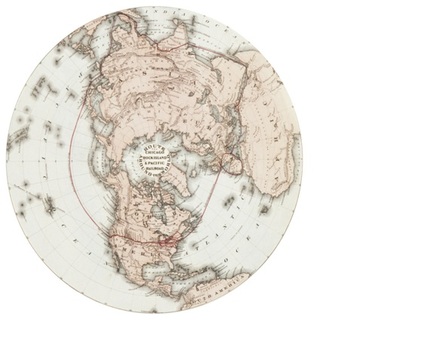-
today's events
Gallery and Bookshop Hours Chicago Architecture Biennial Jan 01, 2026 - Feb 28, 2026
-
upcoming events
Zosha Warpeha Lampo Performance Series Feb 21, 2026
-
past events
End-of-year Bookshop Sale Dec 13, 2025 - Dec 20, 2025
Eve Aboulkheir Lampo Performance Series Dec 06, 2025 Performance
Leila Bordreuil and Lee Ranaldo Lampo Performance Series Nov 08, 2025
Roc Jiménez de Cisneros Lampo Performance Series Oct 11, 2025
Concepción Huerta Lampo Performance Series Sep 27, 2025 Performance
Madlener House
4 West Burton Place
Chicago, Illinois 60610
Telephone: 312.787.4071
info@grahamfoundation.org

This event brings together the editors and several contributors to the Graham-funded book Chicagoisms: The City as Catalyst for Architectural Speculation, which interrogates Chicago’s history of fomenting and transmitting radical architectural and urban visions. Editor Alexander Eisenschmidt will introduce the project and short presentations by Penelope Dean, Ellen Grimes, Sam Jacob, and Mark Linder, which will be followed by a discussion, moderated by editor Jonathan Mekinda. The event will highlight some of the most productive episodes in the city’s past and explore what made Chicago function so effectively as a mediator of ideas and an instigator of speculation. The book launch also marks the opening of the exhibition “Chicagoisms” at the Art Institute of Chicago. Building on the premise of the book, this exhibition mines the history of the city to define principles of architectural action and urban engagement to which architecture practices were invited to respond via speculative proposals for the contemporary city.
Copies of Chicagoisms: The City as Catalyst for Architectural Speculation will be available for purchase at the Graham Foundation Bookshop.
This event is co-sponsored by the Architecture & Design Society at the Art Institute of Chicago.
Alexander Eisenschmidt is a designer, theorist, and Assistant Professor of Architecture at the University of Illinois at Chicago. His work investigates the productive tension between the modern city and architectural form – a topic on which he has published and lectured extensively. Eisenschmidt is the editor of City Catalyst (AD, 2012), curator of City Works for the 13th International Architecture Biennale in Venice, and founding partner of Studio Offshore.
Jonathan Mekinda is an Assistant Professor at the University of Illinois at Chicago with a joint appointment in the Department of Art History and the School of Design. His research focuses on the history of modern architecture and design during the middle decades of the twentieth century, particularly in Italy, which is the subject of his current book project, Building the House of Man. His writing can be found in journals such as the Journal of Design History and Design Issues and in the forthcoming volume Revival: Memories, Identities, Utopias (Courtauld Books Online, 2015).
Penelope Dean is Associate Professor of Architecture at the University of Illinois at Chicago. Her writings have appeared in Architectural Design, Harvard Design Magazine, hunch, Log, Praxis, and TransScape. Her research has been supported by grants from the Graham Foundation for Advanced Studies in the Fine Arts and a Visiting Scholars Residency at the Canadian Centre for Architecture at Montreal. She is founding editor of the architectural magazine Flat Out.
Ellen D. Grimes is an Associate Professor at the School of the Art Institute of Chicago, where she teaches architectural design, technology, and theory. Previously she has taught at the University of Illinois at Chicago and the Illinois Institute of Technology, and served as the executive editor of the Journal of Architectural Education.
Sam Jacob is an architect and critic. He was co-founder of FAT, where he was responsible for a range of internationally acclaimed projects, and now directs his own architecture and design studio. He is Director of Night School at the Architectural Association in London and teaches at the University of Illinois at Chicago. He is also a columnist for Dezeen and Art Review and contributing editor to Icon. Currently, he is co-curating the British Pavilion at the 2014 Venice Biennale.
Mark Linder is Associate Professor in architecture and Chancellor’s Fellow in the Humanities at Syracuse University. He is the author of Nothing Less than Literal: Architecture after Minimalism (MIT Press, 2004) and is currently at work on a book titled Three Easy Mieses: That’s Brutal, What’s Modern? on the alternative mid-century modernisms of Alison and Peter Smithson, Walter Segal, and John Hejduk.
Image: "Route Via Chicago Rock Island & Pacific Railroad Around the World," 1870. The map celebrates Chicago's status as a metropolis simultaneously distant from and intimately connected to the rest of the world.
Copyright © 2008–2026 Graham Foundation. All rights reserved.